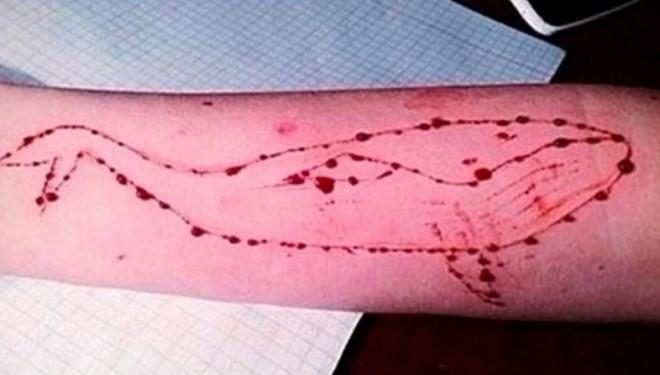
Commercial whaling of a different kind is raising a global alarm. The whales this time are children, mostly teenagers. It centres around a perverse online game, titled Blue Whale, that has claimed over 100 lives of children across the world. In India, a couple of deaths so far has been linked to the game.
Also read: Blue Whale Challenge: Russian teen 'mastermind' arrested over suicide game
The 50-day challenge devised by a Russian, now behind bars, culminates in participants committing suicide similar to the beaching of whales. The game finds its victims through different hashtags on Twitter, YouTube, Facebook, and Instagram.
Once into the group, participants receive instructions from an anonymous administrator. These range from ordinary boring stuff to the climax in death. In between are thrown a series of 'challenges' devised by a devious mind to tire the mind and render it incapable of clear thinking. These include watching or listening to horror clippings of blood and bodies, cutting their own veins, balancing on the roof top, killing an animal and posting a picture as proof, watching suicide clippings, chatting with admin night after night at 4.20 am, so on.
According to the confessions of some participants who escaped the death grip, the images and screams were so awful it made them want to harm someone or their self. The victims are manipulated by the admin to believe that life is awful and dying is a good thing to do. One survivor told the Daily Mail that the founder told her she was not interesting and her parents didn't need her, hence dying was best.
In turn, the participants tag their friends and draw them into the game using the challenge bait. Many get into it out of sheer curiosity. But once in, they get addicted. Any move to leave is thwarted using threats and blackmail.
The founder, Philipp Budeikin, a 22-year-old Russian, said in an interview that he devised the game to "cleanse society," of "biological waste" referring to the victims as weaklings not worthy of living. He is in jail for three years now but the game has moved on, with another admin taking over. This one is suspected to be a female teenager. Many other parallel groups are said to be running the show.
The fear haunting most parents today is if the hunt has reached home. How to avoid a calamity, how to check the spread of the deadly game in time, how to talk to children, the array of questions addressed to psychologists are telling by themselves.
One needs to examine the reasons the sick game finds its target so easily. This is a combination of many things. For one, most of the victims are from families where children are left alone and to their own devices. With parents busy at work and social life, children are unsupervised and the 'game' goes undetected.
A psychologist friend notes how the game targets the most vulnerable section. Children are incapable of thinking independently or taking the right decision, and this is exactly what Blue Whale banks on.
The next crucial factor is that of appreciation and love. Appreciation is for the neighbour's child and love shown by buying things. For the child who has rarely heard of praise in life, suicide in the game is lauded as a moment of glory. Conversation in many homes is almost absent. In steps a stranger who fills the void with a show of care and concern. Many of the Russian teenage girl victims believed themselves in love with Budeikin.
Yet another reason for the pull of the game is lack of physical activity in the lives of children today. Left to gadgets for constant mental stimulation, and a boredom barely held at bay, they are sitting targets for the deadly game with its 'dares' and tasks.
Experts point out to two or three simple safeguards. Supervision, supervision and supervision, above all. Staying alert to change of habits or moodiness, being in touch with your children's friends, having a healthy interest in their daily lives are some tips.
Activities need to be monitored, especially with gadgets. Rather than taking a hostile approach, a friendly one would be advisable. Even discussing the Blue Whale game would be a good idea to hear out their ideas and educate them. More important is to simply spend time with children, talking, playing, etc on a daily basis, not relegated to weekends or holidays alone!
At a counselling session witnessed in a school recently, most students chattered away to their peer counsellor and expressed the same refrain -- that nobody had shown so much interest in their lives. The questions asked of them had been all about their everyday activities, fears, likes and dislikes. Keeping the communication line open is very important.
Restricting time on mobile phones, iPads, laptops and perhaps blocking some apps has been suggested as measures. Ensuring a daily dose of physical activity would be an additional safeguard against overuse of gadgets.
Above all, children need to be shown love and appreciation. This holds for pre-teens and teens. With the teens there is need to be friends rather than overbearing parents. Subtle indoctrination of moral values which are missing these days would help instil a sense of purpose. Involving children in responsibilities and decisions at home can also give a feel of being needed.
Unlike the real blue whale, the largest animal on the planet with the loudest calls, this morphed version goes unseen and unheard, almost till the beaching. It is time to tune into this frequency and save the whales.
















